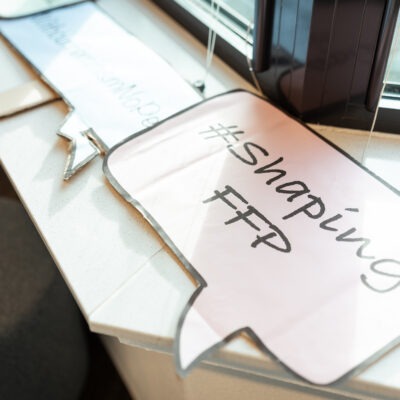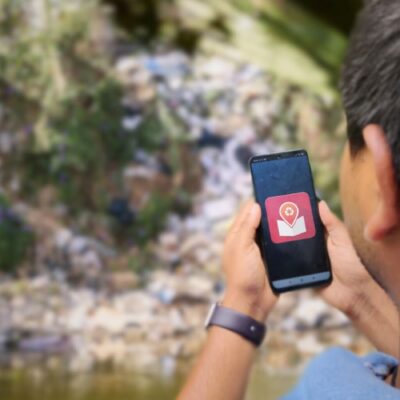Facebook, Instagram and Twitter are failing to take action against more than 9 in 10 posts containing misinformation about coronavirus which are reported to the platforms, according to new research created from the work of the Youth Against Misinformation group.
Read: #WillToAct, the new report.
649 posts that contravened their stated standards were reported to the social media platforms, but action was taken on only 61 (9.4%) of the posts. Of those, 6.3% of posts were removed , 2% of posts were from accounts which were subsequently taken down, and 1% were flagged as false information but remain online. 90.6% of misinformation posts reported to the platforms were left untouched.
Examples of the posts which were not removed include conspiracy theories and false claims that;
X Viruses cannot be transmitted by air
X Covid-19 is caused by vaccines
X 5G mobile technology poisons cells and causes the illness known as Covid-19
X Coronavirus is a hoax, in order to cover for the erection of 5G towers
X Covid-19 is a “false flag” in order to force compulsory vaccinations
X Colloidal silver cures and prevents Covid-19
X Seven children died in a vaccination trial in Africa
X Taking vitamins C, D and zinc, and drinking hot water, cures Covid-19
X Covid-19 can be cured by drinking aspirin dissolved in hot water with honey
X Wearing a facemask causes cancer
X The pandemic is fake and will be used to microchip and enslave the public
The findings are in stark contrast to public statements made by each social media company, claiming to be taking strong action to stamp out coronavirus misinformation.
Facebook says it removes false information and conspiracy theories that could be harmful, including promotion of false cures or 5G conspiracy theories.
Twitter has promised to remove tweets that deny the effectiveness of measures to prevent the spread of Covid-19, promote false cures for the disease or deny scientific facts about it. Instagram also claims it removes harmful misinformation related to Covid-19.
The research is published by the Center for Countering Digital Hate (CCDH) and Restless Development based on information generated by Youth Against Misinformation, a group of young activists coordinated and trained by Restless Development and the CCDH. The volunteers found and reported the misinformation posts between 20 April & 26 May.
It’s discouraging to see such few pieces of misinformation removed, but it is particularly frustrating that there often doesn’t seem to be any rhyme or reason as to which pieces are removed. However false something is, there is clearly no guarantee these platforms will take the responsibility to stop it spreading seriously.
Sara*, A Youth Against Misinformation activist.
*Name has been changed to protect the volunteer’s identity
In this pandemic, we all have to do our bit to keep our communities safe. Social media giants are shirking their responsibility to stop dangerous misinformation spreading. Their systems for reporting misinformation and dealing with it are simply not fit for purpose.
Social media giants have claimed many times that they are taking Covid-related misinformation seriously, but this new research shows that even when they are handed the posts promoting misinformation, they fail to take action. What is a real kick in the teeth is that while they were shedding content moderators and complaint reviewers, Facebook nevertheless found $400 million dollars to buy a meme library.
If social media giants continue to publish misinformation on their websites, then politicians need to hold them to account by imposing financial sanctions for the costs to the NHS, fire service, police and all of society that misinformation causes, and legislate for deeper, faster regulation.
Imran Ahmed, Chief Executive Officer, CCDH
Youth Against Misinformation is youth power in action. Young people are doing their bit to stop the spread of misinformation about COVID-19 online, but social media companies are letting them and all of us down.
This research shows they are failing to keep their promises despite the efforts of young people to help them take action on the info-demic.
Actions speak louder than words; we urge these companies to listen to young people who are their allies in finding dangerous misinformation, removing it swiftly and stopping it doing harm.
Rosanne Palmer-White, UK Director, Restless Development
Read: #WillToAct, the new report.
Youth Against Misinformation: Stop the Spread Online.
This initiative is being coordinated and supported by Restless Development and the Center for Countering Digital Hate.
It has two aims: to monitor and root out dangerous COVID-19 misinformation online; and build the skill-set and agency of young people to understand how misinformation is spread online, identify fake news and develop strategies to tackle it.
Volunteers receive comprehensive training on how to identify, report and respond to harmful misinformation online, following five principles of CCDH’s Don’t Spread the Virus campaign.
Take action.
Any individuals interested in volunteering with Youth Against Misinformation can fill in our expression of interest form.
You can read more about tackling misinformation and mythbusting on our blog.
Get in touch.
If you are a journalist and would like more information please contact comms@restlessdevelopment.org
Why Is Restless Development Committed to Tackling Misinformation?
- Misinformation is dangerous and causing harm. When people follow incorrect guidance about COVID-19, it can put their lives at risk and hamper our collective efforts to stop the spread of the virus.
- Misinformation is spreading fast online because it can be difficult to track the source of the information and can easily be multiplied.
- A recent study found that of 225 pieces of COVID-19 misinformation, 88% were spread online, compared to 8% on TV and 9% on news outlets.
- By reporting how and where misinformation is spread, we can keep the pressure on social media companies to remove misinformation.
- Some misinformation about COVID-19 has led to xenophobia and racism. Turning the tide on the pandemic needs unity between nations and people, not division.
- Having correct information can empower individuals and communities to take the right action to protect themselves and others.
Stopping the 2014-16 Ebola outbreak and the progress made to reduce rates of HIV have both relied on communities being equipped with the knowledge to make informed decisions and protect themselves.





